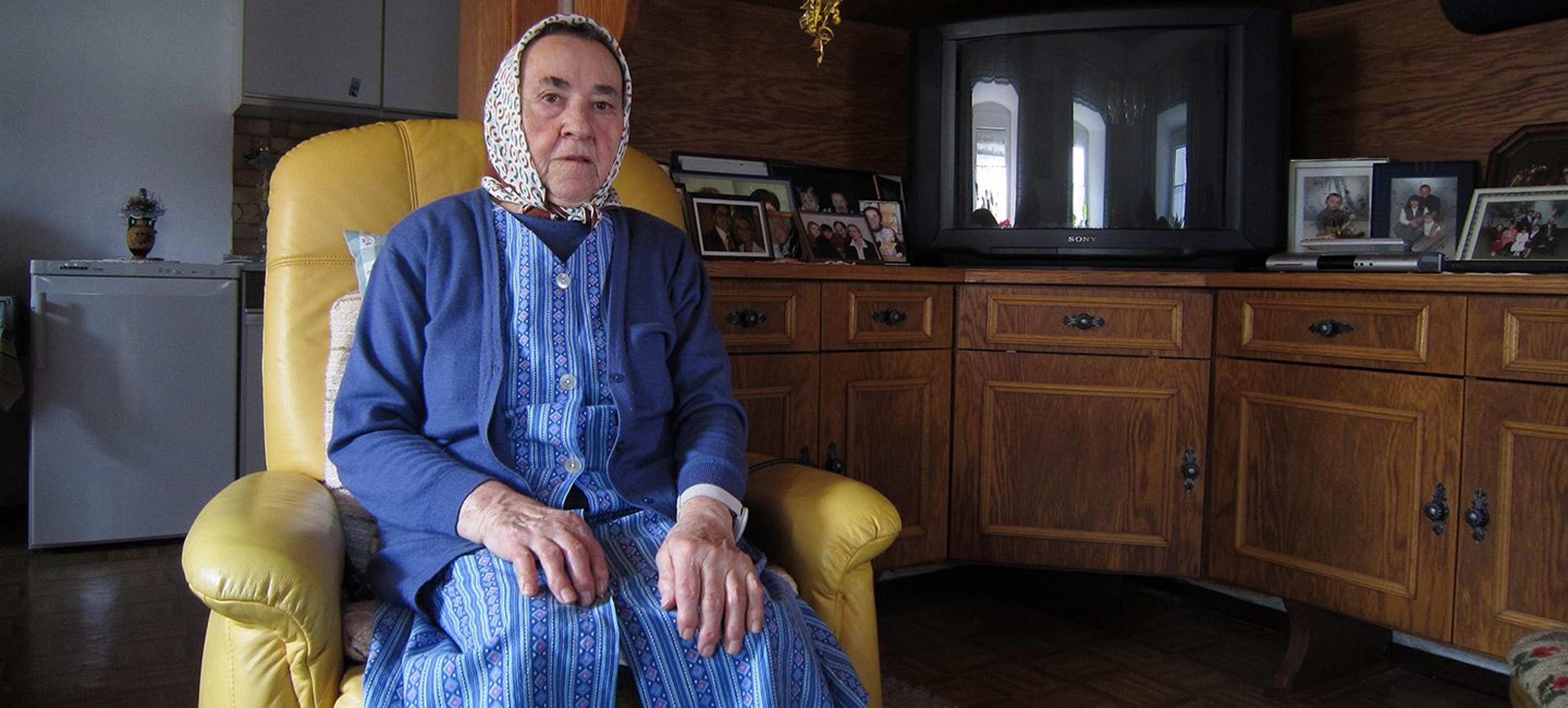In Final Account, filmmaker Luke Holland brings a new light on a dark and familiar topic. Interviewing older German men and women who were young people during the Nazi reign, Holland reframes the horror of the Holocaust and, in Hannah Arendt’s words, the banality of evil. As his subjects recite how easily they and other citizens accepted and accommodated the Nazi terror, Holland reveals how easy it would be for this nightmare to happen again. With “the past speaking to the present in a hoarse, failing voice,” The Guardian points out, the film “shows how a hundred shades of grey combine to make a darkness.” The film’s unflinching willingness to listen, however, ultimately provides light and hope. “We must keep educating and learning,” stresses Holland. “We must do everything we can to stop anything like this happening again.”
With Holland’s Final Account coming to theaters, we’re considering five other prescient films whose historical stories throw light on the world we live in now.
The official trailer for Final Account.
The Way I See It
Dawn Porter’s documentary portrait, The Way I See It, chronicles the life and work of Pete Souza, the former White House photographer whose images captured history being made. In recording the intimate and political moments of presidents Ronald Regan and Barack Obama, Souza also preserved a model of exemplary presidential behavior for posterity. When it was released in the Fall of 2020, those images resonated with people getting ready to go to the ballot box. “It’s about Pete’s journey, his experiences, his photographs,” explains producer Evan Hayes. “The film tries to convey a sense of what leadership can be at its best.” While attuned to recent events, The Way I See It, especially with its poignant portraits of presidents as leaders and human beings, will, according toVariety, “carry on being relevant to audiences for decades to come.”
The official trailer for The Way I See It.
BlacKkKlansman
While Spike Lee’s BlacKkKlansman recounts the extraordinary tale of Ron Stallworth (John David Washington), a Colorado Springs police detective who in the 1970s infiltrated the KKK with the help of a white colleague (Adam Driver), its piercing portrait of overt and systemic racism resonated in 2018 America. Lee chose the project precisely because of how it reflected current events. “From the beginning,” Lee noted, “We had to connect it to today.” Critics and audiences immediately recognized how this period piece held up a mirror to contemporary society. “Rather than letting the audience reassure themselves that the story is rooted in the past,” exclaims The Atlantic. “Lee firmly points the film’s conclusion to the present, and to the future.”
The official trailer for BlacKkKlansman.
Darkest Hour
Joe Wright’s Darkest Hour recounts how Winston Churchill (Gary Oldham in an Academy Award®-winning performance) stepped up to become Britain’s prime minister and instill hope and purpose in a nation on the brink of disaster. With much of its army pinned down on the French coast, Britain lived during those terrifying days in 1940 with the very real fear that they would be the next domino to fall in Nazi Germany’s mad dash to conquer Europe. When the film was released, many believed that its portrait of a steadfast and inspiring leader spoke as much to current politics as it did to World War II history. While it was never intended as a contemporary commentary, Wright acknowledges that in the end the film “keyed into some of the debates that are happening about leadership, and what great leadership looks like,” a point made by many reviews. “As a portrait of leadership at its most brilliant, thoughtful and morally courageous,” notes The Washington Post, “Darkest Hour is the movie we need right now.”
Darkest Hour's "Story Featurette."
Milk
When Milk, Gus Van Sant’s portrait of the slain gay politician Harvey Milk, opened in theaters in the fall of 2008, a political battle was raging in California that eerily echoed the struggles Milk (Sean Penn) fought in the film. As The Los Angeles Times pointed out, “It’s impossible to see Milk’s anti-Prop. 6 demonstrations… without thinking of the very current battle over Proposition 8 and its ban of gay marriage.” While Milk's Prop. 6 dealt with LBGTQ teachers and Prop 8 touched on same-sex marriage, the objects of oppression were the same. The film “turns out to be a timely message,” notes NPR, which will “inspire future generations of gay activists.” In fact, both the film and its hero's example drew many people to vigils at movie theaters to call attention to the issue.
The official trailer for Milk.
On the Basis of Sex
Long before Supreme Court Justice Ruth Bader Ginsburg became notorious, she was, as Mimi Leder’s On the Basis of Sex shows, a piercingly intelligent law student, professor, and lawyer with an unstoppable passion to correct gender inequality. In the film, Ginsburg (Felicity Jones) moves from teaching the law to changing it when she partners with her husband Martin (Armie Hammer) on an obscure Denver tax case that could reframe the meaning of equal protection for future cases. To highlight the continuity between the young Ginsburg and the later Supreme Court Justice, Leder ends the film with the real RBG, a conclusion that Leder explains would let us “feel such a gut-wrenching feeling, like we had really completed the journey.” It's a cinematic device that speaks directly to today's audiences. Connecting the past and present, Time Out writes, “Leder’s film civilly urges us to face today’s injustices head-on, armed with conviction and a steady gaze.”
On the Basis of Sex's "Legacy of RBG Featurette."
